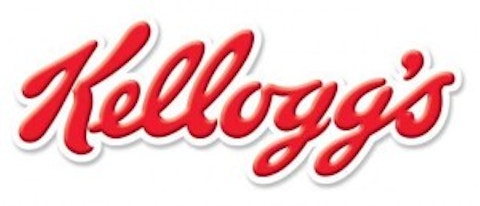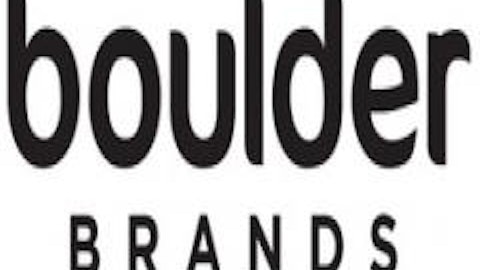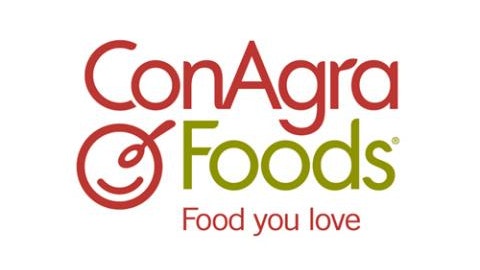Food companies generally offer steady growth over time, but their returns have far exceeded the global benchmark indices over the last couple of years. For instance, Kellogg Company (NYSE:K)’s shares have risen by nearly 35% over the last year. But its forward P/E equates to 15x, which is why the Street is questioning the sustainability of its rally.

A strategic acquisition
To begin with, Kellogg Company (NYSE:K) has a rather high debt/equity ratio of 272%, as compared to General Mills, Inc. (NYSE:GIS)’ 115%. Its high debt levels can be attributed to its acquisition of Pringles for $2.695 billion, which was carried out last year. Since the acquisition, Kellogg Company (NYSE:K) has witnessed a two-fold increase in its snack revenues, while its overall operating cash flows have risen by 11% over the period.
Meanwhile, General Mills, Inc. (NYSE:GIS) sports a lower debt/equity ratio despite going on an acquisition spree last year. This is because General Mills, Inc. (NYSE:GIS) had acquired small companies with concentrated geographical footprint, having little or no competition. Hence General Mills, Inc. (NYSE:GIS) didn’t have to pay as much as Kellogg Company (NYSE:K) for its acquisitions.
Even ConAgra Foods, Inc. (NYSE:CAG) has a high debt/equity ratio of 210%. The processed food company had acquired Ralcorp Holdings for $5 billion last year, which managed to push up its revenues by 16.26% over the last year. But its TTM net income has plunged by 52.02% due to high acquisition related costs. As these costs subside, analysts estimate its annual EPS to grow by 15.81% over the next year.
But this doesn’t imply that Kellogg Company (NYSE:K) made a bad move. Pringles is present in over 150 countries and posted $1.5 billion under FY12 revenues. Since Pringles is geographically more diversified, its acquisition has allowed General Mills, Inc. (NYSE:GIS) to enter new markets without regulatory loops.
To meet its acquisition-related liabilities, Kellogg Company (NYSE:K) had suspended its share repurchases for two years, but continued its dividends payouts. This allowed the company to divert its cash flows to repay its debt, without straining its cash reserves. As of now, Kellogg has a total long-term debt of $7.55 billion.
Growth prospects
For the recent quarter, Kellogg posted an overall sales growth of 12% YoY, which was mainly driven by a 7% sales growth (YoY) in its Pringles brand. But Kellogg’s quarterly operating profit declined by 3.5% YoY due to acquisition-related costs. But these costs are expected to subside in the coming quarters, which would naturally bolster Kellogg’s profit margins.
Besides that, Kellogg is also launching several new products in its breakfast segment. Most of the cereal demand comes from the breakfast segment, which is vital for growth of the world’s second largest cereal company. This would not only bolster its organic growth, but also diversify its product mix and eventually result in a well-rounded meal segment.
Furthermore, its operations in emerging markets have been reporting double-digit growth for the last couple of quarters. As of now the company generates around 6% of its overall revenues from emerging nations, which is expected to double over the next couple of years.
Investor’s delight
The board of Kellogg also recently authorized a $1 billion worth of repurchase program. The buyback program is expected to complete April 2014, which should allow the company to repurchase exercised options during the period.
This equates to a pending share repurchase of 4.34% of its total outstanding shares, which should boost its dividend yield to 3.01%.
As of now, Kellogg pays out $1.76 per share, which equates to a yield of 2.84%. With a free cash flow yield of 5.27% and cash flow coverage of 2.7x, I don’t think its dividend sustainability is a cause of concern.
Final words
Kellogg is a solid company and its acquisition of Pringles could continue to fire up its EPS. This coupled with its share repurchases along with dividend payouts would only bolster its EPS. According to analysts at UBS, the fair price for Kellogg is around $75 per share, which calls for a 20% upside from the current price.
Piyush Arora has no position in any stocks mentioned. The Motley Fool has no position in any of the stocks mentioned. Piyush is a member of The Motley Fool Blog Network — entries represent the personal opinion of the blogger and are not formally edited.
The article 3 Reasons To Buy This Income Growth Stock originally appeared on Fool.com is written by Piyush Arora.
Copyright © 1995 – 2013 The Motley Fool, LLC. All rights reserved. The Motley Fool has a disclosure policy.




